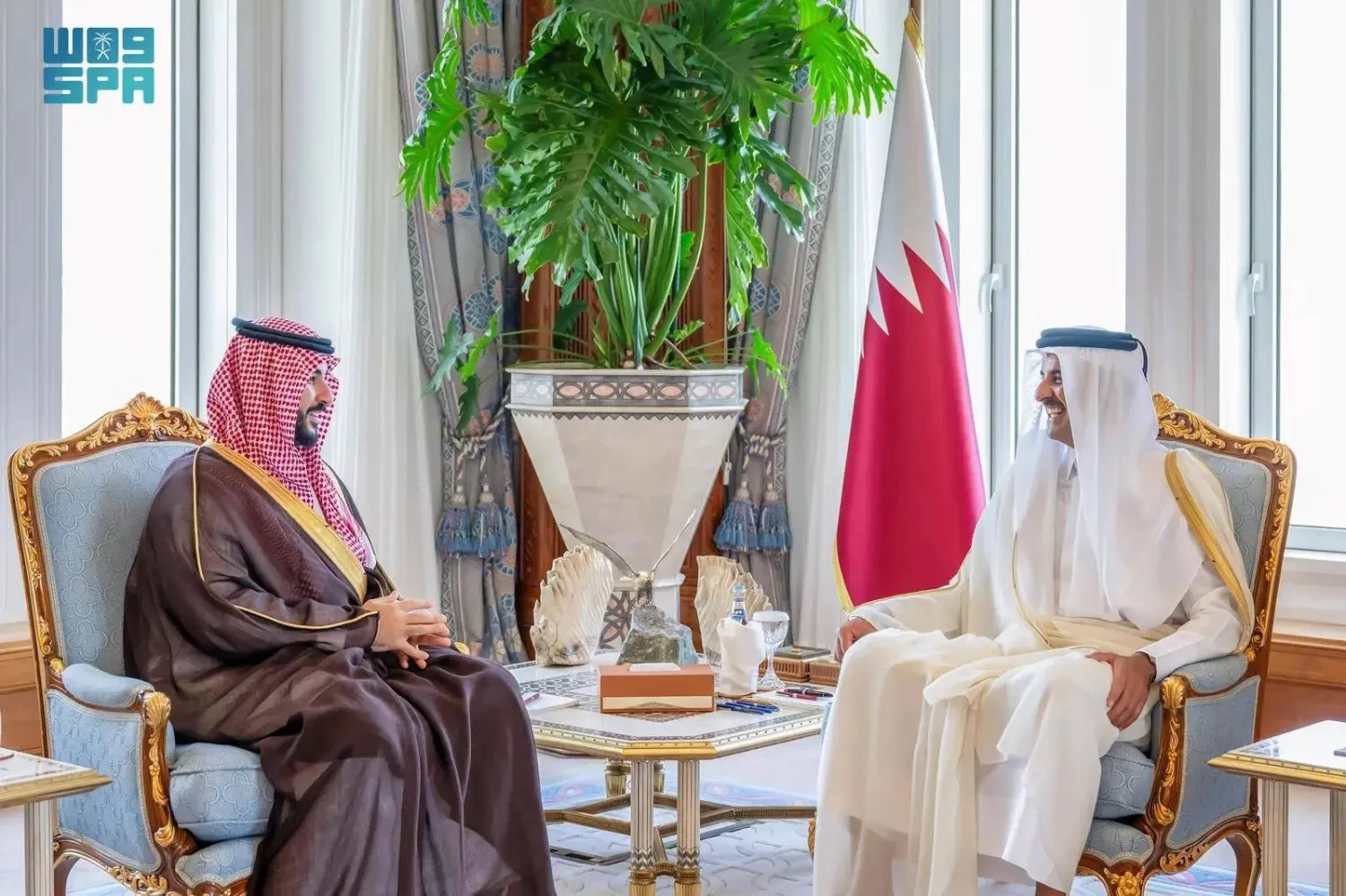Upon directives of the Saudi leadership, Minister of Defense Prince Khalid bin Salman bin Abdulaziz held a meeting on Monday with Emir of Qatar Sheikh Tamim bin Hamad Al Thani, the Saudi Press Agency said.
The minister conveyed the greetings of Custodian of the Two Holy Mosques King Salman bin Abdulaziz Al Saud and of Prince Mohammed bin Salman bin Abdulaziz Al Saud, Crown Prince and Prime Minister, wishing the Qatari Emir, government, and people continued progress and prosperity.
The Qatari Emir sent his greetings and appreciation to the Custodian of the Two Holy Mosques and the Crown Prince.
Discussions focused on the strong fraternal ties between the two countries and explored avenues to bolster security and stability in the region.
Present at the meeting were prominent officials from both sides. The Saudi delegation included Minister of Transport and Logistic Services Saleh Al-Jasser, and Director-General of the Office of the Minister of Defense Hisham bin Abdulaziz bin Saif.
The Qatari delegation included Deputy Prime Minister and Minister of State for Defense Affairs Khalid Al Attiyah, Chief of the Emiri Diwan Sheikh Saoud bin Abdulrahman Al Thani, and Minister of Transport Jassim bin Saif bin Ahmed Al Sulaiti.
Saudi Defense Minister Meets with Emir of Qatar in Doha

Saudi Arabia's defense minister meets with Emir of Qatar in Doha. (SPA)

Saudi Defense Minister Meets with Emir of Qatar in Doha

Saudi Arabia's defense minister meets with Emir of Qatar in Doha. (SPA)
لم تشترك بعد
انشئ حساباً خاصاً بك لتحصل على أخبار مخصصة لك ولتتمتع بخاصية حفظ المقالات وتتلقى نشراتنا البريدية المتنوعة







